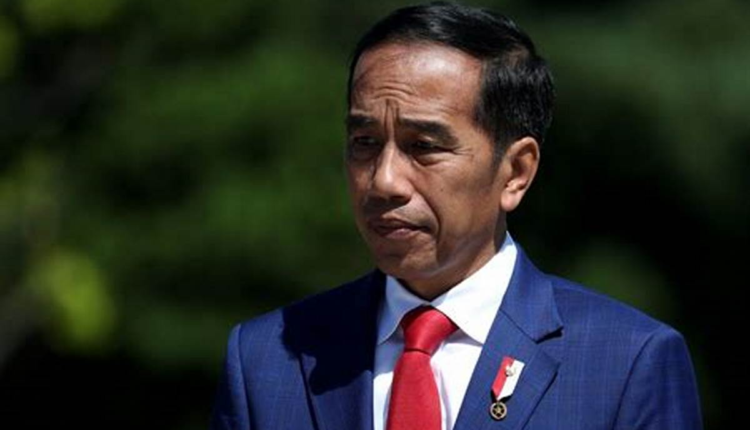Building an Inclusive Economy: The Legacy of the Job Creation Law from President Jokowi’s Leadership
By: Abdul Maskur *)
Under President Joko Widodo, inclusive economic development has become a top priority, with the aim of driving equitable growth across Indonesia. One of the biggest breakthroughs in achieving this goal was the enactment of the Job Creation Law in 2020. This law is designed to create a friendlier investment climate, simplify the business licensing process, and increase the competitiveness of the Indonesian workforce.
With the Job Creation Law, the government is trying to open wider access for Micro, Small, and Medium Enterprises (MSMEs) to develop. Through various incentives and ease of licensing, MSMEs now have a greater opportunity to compete in the national and international markets. In addition, training and development of workforce capacity are an important part of this policy, to ensure that Indonesia’s human resources can meet the needs of the ever-growing labor market.
The legacy of the Job Creation Law from President Jokowi’s leadership not only focuses on increasing investment, but also on creating more inclusive jobs. With more flexible and investment-friendly regulations, it is hoped that many new economic sectors will develop, especially in areas that were previously less touched by development.
In the transition period to the new government, the Job Creation Law will remain an important pillar in building an inclusive and sustainable economy in Indonesia. Therefore, the Prabowo Subianto and Gibran Rakabuming Raka Government is expected to continue the implementation of the Job Creation Law to encourage ease of doing business and increase investment competitiveness in Indonesia.
Expert Staff of the Coordinating Minister for the Economy, Raden Pardede stated that the struggle to implement the Job Creation Law has been very difficult and that its current implementation is still far from expectations. According to him, if this law can be implemented properly, the results will be very positive.
The impact of the implementation of the new Job Creation Law will be felt in the long term, with the potential to create high and sustainable economic growth. Indonesia needs economic growth of 7% to 8% each year to escape the middle income trap, and achieve a per capita income of US$30,000 by 2045. This can be achieved with the maximum implementation of the Job Creation Law.
Meanwhile , Labor Observer from Gajah Mada University (UGM), Prof. Tadjudin Noer Effendi , expressed his views on Law No. 6 of 2023 concerning the Stipulation of Perppu No. 2 of 2022 concerning Job Creation. According to him, there are several aspects in this law that have the potential to increase the flexibility of the labor market .
Not only that, one of the things that is of concern in the Job Creation Law is articles 59 to 66 which regulate flexible working hours. He emphasized that the Job Creation Law provides space for companies to adjust working hours according to production needs and market demand. With this regulation, companies are expected to be able to increase productivity and operational efficiency.
However, the use of this flexibility does not only provide benefits for the company. Tadjudin also reminded that the existence of flexible working hours must be balanced with adequate protection for workers. In this context, it is important for companies to continue to consider employee welfare, so that even though working hours can be adjusted, workers’ rights are still guaranteed.
Previously, Coordinating Minister for Economic Affairs Airlangga Hartarto appreciated the increase in Indonesia’s competitiveness, rising to 27th position in the world from 34th, based on the assessment of the Institute for Management Development (IMD) World Competitiveness Ranking (WCR) 2024. According to him, the increase in ranking was the impact of the Job Creation Law, which facilitated the business climate in the country.
Furthermore, Coordinating Minister Airlangga assessed that the impact of the Job Creation Law on increasing the competitiveness ranking was supported by an increase in business efficiency factors (from 20th to 14th), government efficiency (from 31st to 23rd), and economic performance (from 29th to 24th).
Meanwhile, the Ministry of Manpower (Kemenaker) is trying to show that the Job Creation Law actually protects workers more. This law is here as a solution to overcome various employment problems in Indonesia. In the view of the Ministry of Manpower, with more flexible regulations, companies can operate better, which in turn is expected to create new jobs.
In the future, it is important for all parties to continue to monitor the implementation of the Job Creation Law and conduct periodic evaluations. This aims to ensure that the resulting policies are truly beneficial and create a balance between company interests and worker protection.
In addition, active participation from the community, especially from workers, is needed in the process of monitoring and evaluating policies taken by the government. With good collaboration between all elements of society, it is hoped that employment conditions in Indonesia can continue to improve and become more equitable.
This policy legacy reflects President Jokowi’s commitment to leaving a strong foundation for equitable economic growth that can benefit all levels of society.
*) Economic observer from the Pancasila Madani Institute
